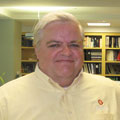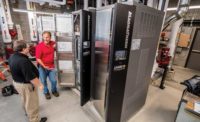
Carl Frye, C.I.P.E., is a plumbing engineer at Falls Church, Va.-basedGirard Engineering. A 30-plus-year veteran at Girard, Frye started as a draftsman at the company and has held the positions of junior, senior and project engineer during his long tenure there. Frye, whose interest in engineering dates back to his days of building and drawing model cars as a child, works on many of Girard’s larger-scope projects that span the realm of apartment and condominum complexes, office buildings, hotels, dedicated corporate campus-type facilities and government office buildings. Frye spoke topmerecently about a number of subjects, including LEED, the changes he has witnessed in the engineering field over the years and a project the company is currently working on for the U.S. Coast Guard.

